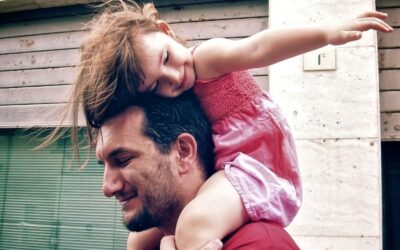Help your child learn how to manage aggressive impulses so they can play nicely with others
Childhood covers many different phases, and some are easier to manage than others. Toddlerhood is one such example – there comes a time that your sweet, happy baby suddenly transforms into a walking, talking, screaming, biting, dramatic little person, and it can be challenging to adapt to these new behaviors that come with finding independence.
Come up with a plan for handling aggression in your toddler before it becomes a habit with lasting negative social consequences.
Behavioral challenges
The good news – and the bad news, in a sense – is that aggressive behavior is normal in early childhood. Young children don’t fully understand emotions or social expectations, have difficulty communicating their thoughts and feelings and are developmentally incapable of consistently maintaining self-control. Breathe a sigh of relief that your toddler is most likely right on track in terms of behavioral milestones, even if you’re struggling to keep up.
Help your child manage their emotions and behave more appropriately with the following suggestions.
Set children up for success
Establish good behavior by evaluating and eliminating potential tantrum triggers:
- Lock up household items you don’t want them to handle or that could be hazardous.
- State the rules very clearly, and repeat them often.
- Try not to take your child out when you know they are tired, hungry, or restless.
- Find time and space that allows for free, unstructured, loud play. For example, take regular visits to a park.
Avoiding the potential for problems is the first line of defense.
Help them help themselves
It’s important to remember that young children truly don’t have the social skills or brain development to behave in the manner that we’d prefer. It’s your job as a parent to teach them:
- Supervise social play and intervene if a disagreement becomes physical. Separate the children or end playtime immediately to reinforce that there are consequences to aggressive behavior. Be quick, firm, and consistent in addressing issues.
- Teach your children about emotions, and offer alternative suggestions to expressing anger or frustration. Give them permission to loudly say no and remove themselves from a social situation that they find disagreeable.
- Use positive reinforcement instead of threats. React enthusiastically when a play session goes well or even if frustration is expressed without a full-on tantrum.
- Offer a healthy distraction if you sense a social situation is about to go downhill. Suggest a new activity, or bring out a different toy to play with.
- Model good behavior yourself. Although it’s difficult, don’t get angry or act out over your toddler’s frustrating behavior. Stay calm, regulate your voice, and don’t feel guilt over the need to discipline your child. Think of the big picture – you’re helping shape their behavior in a way that will ultimately make their life easier once they understand emotional regulation and appropriate social skills.
Raising toddlers can be challenging. If your child’s behavior seems persistent or extreme in a way that is concerning, ask your pediatrician for insights or advice. Otherwise, stay calm, be prepared, react consistently, and give your child the tools they need to enjoy peaceful playtime with others.
The Virginia Infant & Toddler Specialist Network helps improve the quality of care for infants and toddlers through extensive resources, services, and education for caregivers. Learn more about how we can help you improve the standard of care.




